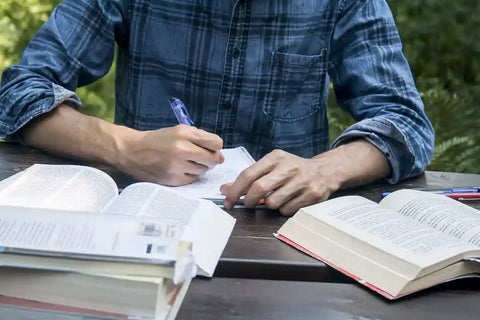Formatando e Apresentando um Artigo para um Jornal Específico
Ao preparar um artigo para submissão a um periódico acadêmico ou científico, você deve usar tudo o que puder aprender sobre o periódico a seu favor. Em primeiro lugar, é absolutamente essencial que você siga precisamente todas as diretrizes e procedimentos de submissão fornecidos pelo periódico – um artigo estruturado de forma inadequada e submetido por um método incorreto em um tipo de arquivo errado é muito fácil para um editor ocupado rejeitar antes que seu conteúdo tenha sido seriamente considerado. Cada parte do seu artigo também deve ser escrita em uma linguagem clara, correta, profissional e, se possível, eloquente, e cada frase deve ser polida ao máximo brilho textual que você conseguir. Ter seu artigo cuidadosamente revisado por revisores qualificados, como os fornecidos pela PRS, pode garantir que tanto o formato quanto a linguagem do seu artigo atendam aos requisitos específicos e aos padrões acadêmicos – ao enviar seu artigo para revisão, certifique-se de incluir quaisquer informações relevantes ou links para as diretrizes do periódico que você está seguindo.
Você também pode aumentar suas chances de sucesso na publicação usando terminologia especializada com precisão e extremo cuidado. É melhor usar terminologia especializada apenas se for necessária e totalmente apropriada ao seu tema, e nunca exagerar em seu uso. Se os termos especializados que você usa estiverem associados à área de especialização do periódico, você pode usá-los com certa liberdade, assumindo que seus leitores os entenderão, mas ainda assim é melhor manter essa terminologia, especialmente qualquer jargão associado ao seu campo, ao mínimo. Qualquer terminologia que você usar em seu artigo e que suspeite não ser familiar aos leitores-alvo do periódico, ao editor ou aos revisores do periódico, deve sempre ser cuidadosamente explicada. Ter um cuidado extra no uso de quaisquer línguas estrangeiras também é essencial. Se o periódico se especializa em estudos de poesia francesa, por exemplo, e esse é o foco do seu artigo, citações dessa poesia não estarão fora de lugar, mas em outras situações traduções para o inglês (com ou sem o texto original) provavelmente serão mais apropriadas e acessíveis para os leitores, incluindo o tão importante editor do periódico.
Familiarizar-se com a estrutura e a linguagem dos artigos já publicados pelo periódico escolhido certamente será útil; de fato, uma das formas clássicas de fazer com que seu artigo se encaixe bem em um periódico é ler e citar artigos já publicados nesse periódico. Isso não significa que você deve citar artigos que são inadequados para o seu próprio trabalho apenas para parecer que seu artigo pertence ao periódico, mas se você fez uma boa pesquisa lendo artigos publicados no periódico que são semelhantes ao seu para escolher o periódico em primeiro lugar, usar esses artigos em seu trabalho será fácil e uma progressão natural da sua pesquisa que realmente ajuda a tornar seu trabalho compatível com outros artigos publicados pelo periódico e, assim, apropriado para sua agenda editorial.
Por que nossos serviços de edição e revisão?
No Proof-Reading-Service.com oferecemos serviços de edição de artigos para periódicos, revisão de dissertações e serviços de revisão online da mais alta qualidade, por meio de nossa grande e extremamente dedicada equipe de profissionais acadêmicos e científicos. Todos os nossos revisores são falantes nativos de inglês que possuem seus próprios títulos de pós-graduação, e suas áreas de especialização abrangem uma ampla variedade de disciplinas, o que nos permite ajudar nossa clientela internacional com a edição de pesquisas para melhorar e aperfeiçoar todos os tipos de manuscritos acadêmicos para publicação bem-sucedida. Muitos dos membros cuidadosamente treinados de nossa equipe de edição de manuscritos e revisão trabalham predominantemente em artigos destinados à publicação em periódicos acadêmicos, aplicando rigorosos padrões de edição de periódicos para garantir que as referências e a formatação usadas em cada artigo estejam em conformidade com as instruções para autores do periódico e para corrigir quaisquer erros de gramática, ortografia, pontuação ou simples digitação. Dessa forma, permitimos que nossos clientes apresentem suas pesquisas de maneira clara e precisa, conforme exigido para impressionar os revisores de aquisição e alcançar a publicação.
Nossos serviços de revisão científica para autores de uma ampla variedade de artigos científicos são especialmente populares, mas também oferecemos serviços de revisão de manuscritos e temos a experiência e expertise para revisar e editar manuscritos em todas as disciplinas acadêmicas, bem como além delas. Temos membros da equipe que se especializam em serviços de revisão médica, e alguns de nossos especialistas dedicam seu tempo exclusivamente à revisão de dissertações e revisão de manuscritos, oferecendo aos acadêmicos a oportunidade de aprimorar o uso de formatação e linguagem por meio das mais rigorosas práticas de edição de tese de doutorado e revisão de artigos para periódicos. Seja você preparando um artigo para conferência para apresentação, aprimorando um relatório de progresso para compartilhar com colegas, ou enfrentando a tarefa assustadora de editar e aperfeiçoar qualquer tipo de documento acadêmico para publicação, um membro qualificado de nossa equipe profissional pode fornecer assistência inestimável e lhe dar maior confiança em seu trabalho escrito.
Se você está no processo de preparar um artigo para um periódico acadêmico ou científico, ou planejando um para o futuro próximo, pode se interessar por um novo livro, Guide to Journal Publication, que está disponível em nosso site Dicas e Conselhos sobre Publicação de Pesquisa em Periódicos.








